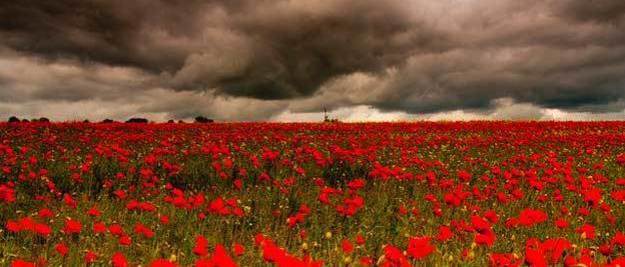In Flanders Fields
Posted on 10th January 2021
In Flanders Fields is the most famous and quoted poem to emerge from the Great War yet it very nearly did not see the light of day. Its author John McCrae, an Officer in the Canadian Army had written in the back of an ambulance having just presided over the funeral of his friend Lt Alexis Helmer killed the previous day at the Battle of Ypres; but so disappointed was he that it failed to capture how he truly felt he tore it from his notebook, screwed it up and threw it away. It was retrieved by one of the men under his command who having read it thought otherwise and returned it to him.
Having the poem back in his possession did not make him like it any the more and so it remained unread and unloved until sometime later he was persuaded to send it to Punch Magazine in London who published it on 8 December 1915, a little more than eight months after it had been written.
Like his friend for whom In Flanders Fields was written John McCrae would not survive the war though he would not die in action but in a hospital bed of pneumonia on 28 January 1918.

In Flanders Fields
In Flanders fields the poppies blow
Between the crosses, row on row,
That mark our place; and in the sky
The larks, still bravely singing, fly
Scarce heard amid the guns below.
We are the Dead. Short days ago
We lived, felt dawn, saw sunset glow,
Loved and were loved, and now we lie
In Flanders fields.
Take up our quarrel with the foe:
To you from failing hands we throw
The torch; be yours to hold it high.
If ye break faith with us who die
We shall not sleep, though poppies grow
In Flanders fields.
Share this post:





